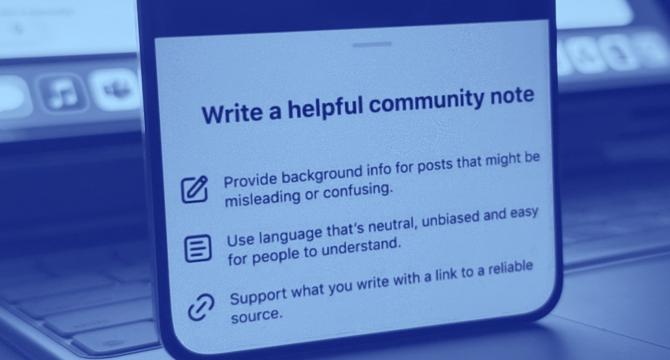Digitaltrends
1M
4

Image Credit: Digitaltrends
Users will fact-check Instagram and Facebook. Let’s just hope it works
- Meta announced Community Notes as a replacement for its fact-checking program, relying on user contributions to flag misinformation on Facebook, Instagram, and Threads.
- Community Notes must adhere to specific criteria, such as using unbiased language, providing URL sources, and gaining consensus among contributors before publication.
- Critics question the effectiveness of Community Notes, especially with the absence of independent fact-checking organizations and the reliance on user-generated content.
- Meta's move away from expert fact-checkers to user-contributed notes raises concerns about the quality and reliability of information being circulated on social media platforms.
- Community Notes pose challenges in maintaining transparency, combating biases, and ensuring the accuracy of fact-checking in a crowd-sourced environment.
- There are fears that Community Notes could be manipulated, leading to misinformation, potential harm to minority groups, and threats to human rights on social media.
- The replacement of fact-checking with Community Notes highlights the difficulty of managing accurate information and combating misinformation in an online landscape.
- Meta's decision to prioritize free speech over fact-checking raises concerns about the spread of false narratives and the potential for online manipulation.
- The lack of clear oversight on the reliability and objectivity of community-sourced notes may result in biased or inaccurate information being disseminated on Meta's platforms.
- The transition to Community Notes introduces complexities in determining the trustworthiness of news sources cited in the notes, especially in diverse markets like India.
- Balancing user-generated content, reliability of information, and avoiding potential social media controversies remains a challenge for Meta as it implements Community Notes.
Read Full Article
Like
For uninterrupted reading, download the app